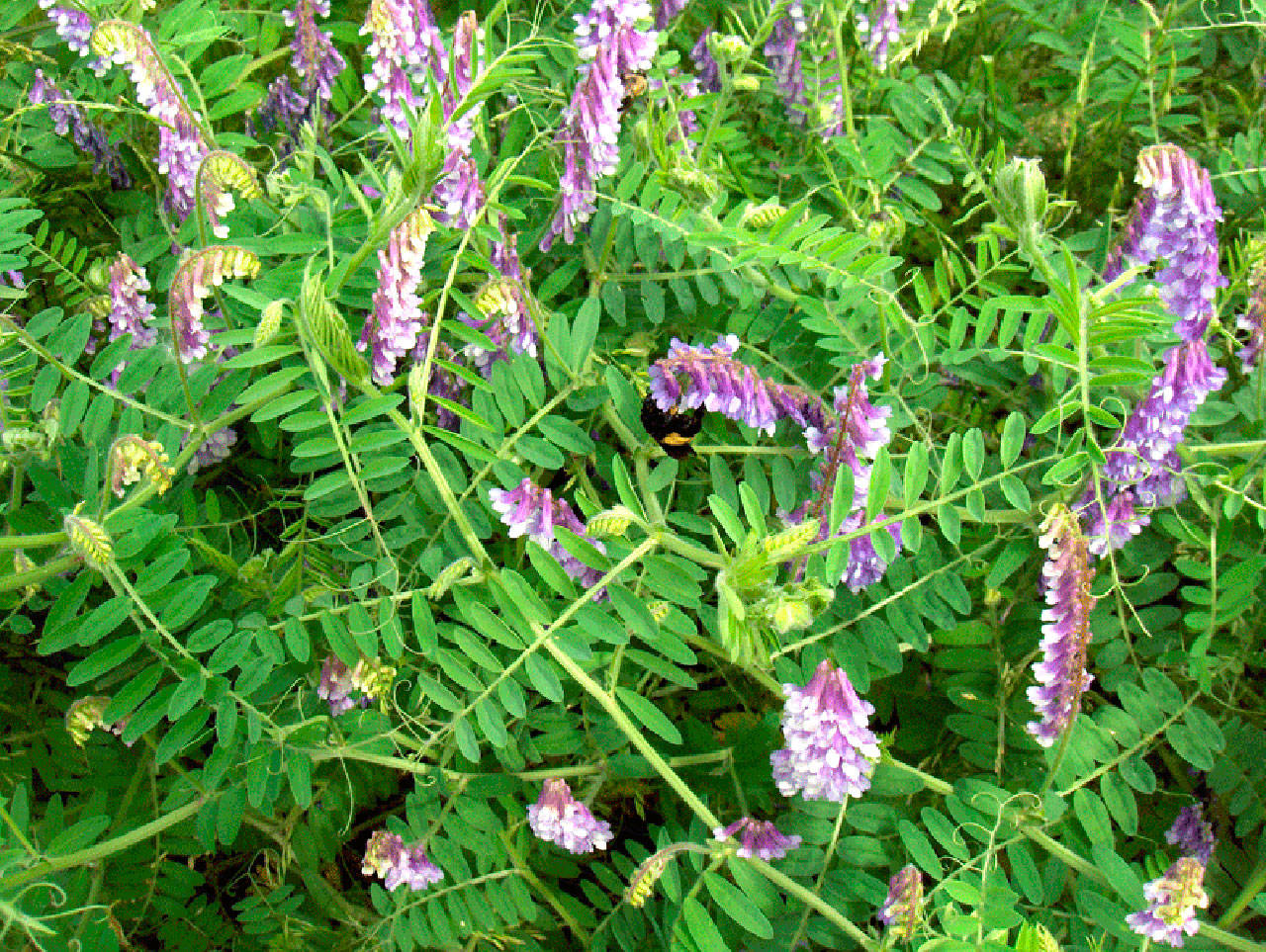Duke’s familiar bray has been silenced, no longer heard throughout his Bass Lake neighborhood.
The 20-year-old miniature donkey, considered a pet by Edward Knapp and his family, died Dec. 14. He may be remembered by a considerable number of Enumclaw citizens, having appeared a few times in the city’s Fourth of July parade; he also was involved with the local WASART group (involved in animal rescue) and once stood vigil in a live nativity scene.
Now, while grieving the loss of a longtime pet, Knapp is on a mission to help others avoid a similar fate.
Duke’s demise was unexpected and, initially, could not be explained. But, with blood examined, tests performed and a suspicious plant shipped to Colorado State University, Knapp believes he has uncovered the key to Duke’s untimely death.
The culprit, he believes, is vicia villosa, commonly known as hairy vetch. While the plant has legitimate use, its seed pod can contain cyanide. The plant, Knapp said, was found in bales he purchased and had been feeding to both Duke and his barnyard companion, a full-size Appaloosa horse.
Knapp isn’t sounding bitter, but simply wants livestock owners to be on the lookout for the purple flower that graces the hairy vetch plant. The state’s Department of Agriculture has been contacted and Knapp was told a team would be investigating.
Knapp purchased the suspect bales from a supplier in east Pierce County who had them shipped in from Eastern Washington. Knapp said he has used the same supplier for more than a decade with no problems.
Duke began exhibiting symptoms association with toxic poisoning, including the lower-leg weakness. Unable to walk on his own, Knapp moved the miniature donkey into a barn where he would be warmer and more comfortable. That’s where Duke spent his final moments.
After Duke’s blood had been tested, a plant sample was sent to Colorado State University. The diagnosis of cyanide in the seed pod was confirmed.
According to CSU’s James L. Voss Veterinary Teaching Hospital website, hairy vetch seeds – when consumed by livestock – can be lethal.
That same website notes that hairy vetch came to America from Europe, introduced as a rotation crop. Used property, it can improve soil. It is now found throughout the U.S., in some Canadian provinces and in Japan. It is considered an invasive plant by a handful of states, including Washington.


